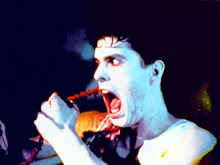 Grand Illusion (1937)
Grand Illusion (1937)Directed by: Jean Renoir
Written by: Jean Renoir + Charles Spaak
Starring: Jean Gabin, Dita Parlo, Pierre Fresnay, Erich von Stroheim, Julien Carette, Georges Peclet, Werner Florian
WWI changed everything, and 'Grand Illusion' carefully reveals the eroding social structure of the early 20th Century. The classes are melting into each other, and the new world emerging is seen with both hope and reservation. The cast is well chosen and they work wonderfully as an ensemble. There are many powerful scenes in the film, so many that it would be pointless to try listing them. Nevertheless, this is a great film about the futility of war, racism, classism, and all other things that separate any human being from another. A wonderful film. A-
 Pygmalion (1938)
Pygmalion (1938)Directed by: Anthony Asquith + Leslie Howard
Written by: George Bernard Shaw, WP Lipscomb, Cecil Lewis, Ian Dalrymple, Anatole de Grunwald, Kay Walsh
Starring: Leslie Howard, Wendy Hiller, Wilfrid Lawson, Marie Lohr, Scott Sunderland, Jean Cadell, David Tree, Everley Gregg
Professor Henry Higgins, an upper-class intellectual snob, makes a bet with a friend that he can transform Eliza Doolittle, a crass, unrefined girl from the street into a refined, dignified lady of society. After working and training Eliza to fit in, he soon realizes that Eliza is a human being, with feelings and opinions of her own. Goerge Bernard Shaw's play is successfully adapted into a funny, touching film, featuring an absolute knock-out performance from Wendy Hiller as Eliza. The sexism that occasionally rears its ugly head could turn off today's viewer, but whatever, they'd be missing out on a really good film. B+
 Ninotchka (1939)
Ninotchka (1939)Directed by: Ernst Lubitsch
Written by: Melchior Lengyel, Charles Brackett, Billy Wilder, Walter Reisch
Starring: Greta Garbo, Melvyn Douglas, Ina Claire, Bela Lugosi, Sig Ruman, Felix Bressart, Alexander Granach
A wonderful romantic comedy starring the luminous Greta Garbo, who plays Ninotchka, a tough Soviet visiting Paris to finalize the sale of some confiscated royal jewels. She plays the role to perfection in finding nothing good with capitalism and all that it represents. The movie must have given audiences some insight into what was going on with the Soviets at that time. She eventually begins to soften a little after spending time with her co-star Melvyn Douglas, a rich playboy, who happens to fall in love with her. Things get complicated when true identities are discovered, and the former owner of the jewels tries to get them back. The story is somewhat basic but does have quite a bit of humor that brought on more than a few chuckles. B+
 The Grapes of Wrath (1940)
The Grapes of Wrath (1940)Directed by: John Ford
Written by: John Steinbeck; Nunnally Johnson
Starring: Henry Fonda, Jane Darwell, John Carradine, Charley Grapewin, Dorris Bowdon, Russell Simpson, O.Z. Whitehead
This powerful film chronicles the turmoil of a family traveling west to California during the Great Depression. The always excellent Henry Fonda plays Tom, just released from prison. He travels back to his family's farm only to discover they've been evicted from their land. When rumors of available work spread from the west, the family packs all their belongings to brave the unknown as they make their way cross country in their jalopy. There are countless powerful scenes and images throughout, as our heroes face starvation, homelessness, and cruelty on their journey. A
 Ball Of Fire (1941)
Ball Of Fire (1941)Directed by: Howard Hawks
Written by: Billy Wilder, Thomas Monroe, Charles Brackett
Starring: Gary Cooper, Barbara Stanwyck, Oskar Homolka, Henry Travers, S.Z. Sakall, Tully Marshall, Leonid Kinskey, Richard Haydn, Aubrey Mather, Kathleen Howard, Mary Field, Dan Duryea
When a group of socially awkward professors, led by Gary Cooper, realize they need to study how 'real' people talk in order to complete their 12 year encyclopedia writing project, they end up unwittingly aiding a beautiful singer (Barbara Stanwyck) escape from the police when her gangster boyfriend gets into hot water. While laying low with the professors, everyone learns something new, and eventually she gets a marriage proposal from Cooper. Things get dangerous for everybody when her mobster boyfriend locates her. Stanwyck is great as always, but it's Gary Cooper who's the real draw here. Playing against his tough guy image, he is really good as the timid, awkward Professor Potts. B
 The Naked City (1948)
The Naked City (1948)Directed by: Malvin Wald
Written by: Albert Maltz + Malvin Wald
Starring: Barry Fitzgerald, Howard Duff, Dorothy Hart, Don Taylor, Frank Conroy, Ted de Corsia, House Jameson, Anne Sargent, Adelaide Klein
Amid a semi-documentary portrait of New York City and its people, Jean Dexter, an attractive blonde model, is murdered in her apartment. Homicide detectives Dan Muldoon and Jimmy Halloran investigate. Suspicion falls on various shifty characters who all prove to have some connection with a string of apartment burglaries. This police procedural was groundbreaking in it's day, but often plays like a narrated episode of 'Law and Order.' Regardless, it's still a pretty interesting movie, with some great on location cinematography of a long-gone New York City of yesteryear. B
 Miss Julie (1951)
Miss Julie (1951)Directed by: Alf Sjoberg
Written by: August Strindberg; Alf Sjoberg
Starring: Anita Bjork, Ulf Palme, Marta Dorff, Lissi Alandh, Anders Henrikson, Inga Gill, Ake Fridell, Kurt-Olof Sundstrom, Max von Sydow
When the young, wealthy Miss Julie and the married servant Jean spend the midsummer night together, they reflect on their respective pasts. They are in love but because of who they are they know they cannot possibly be together. They hatch a plan to run away together, but circumstances, and the specters of their painful histories, seem to hold them where they are. This is a very odd but incredibly moving film. Anita Bjork is fantastic as the cold, defensive Miss Julie, and the dreamlike cinematography is some of the best I've ever seen. A-
----------------
Listening to: Loretta Lynn - Snowbird
via FoxyTunes





No comments:
Post a Comment